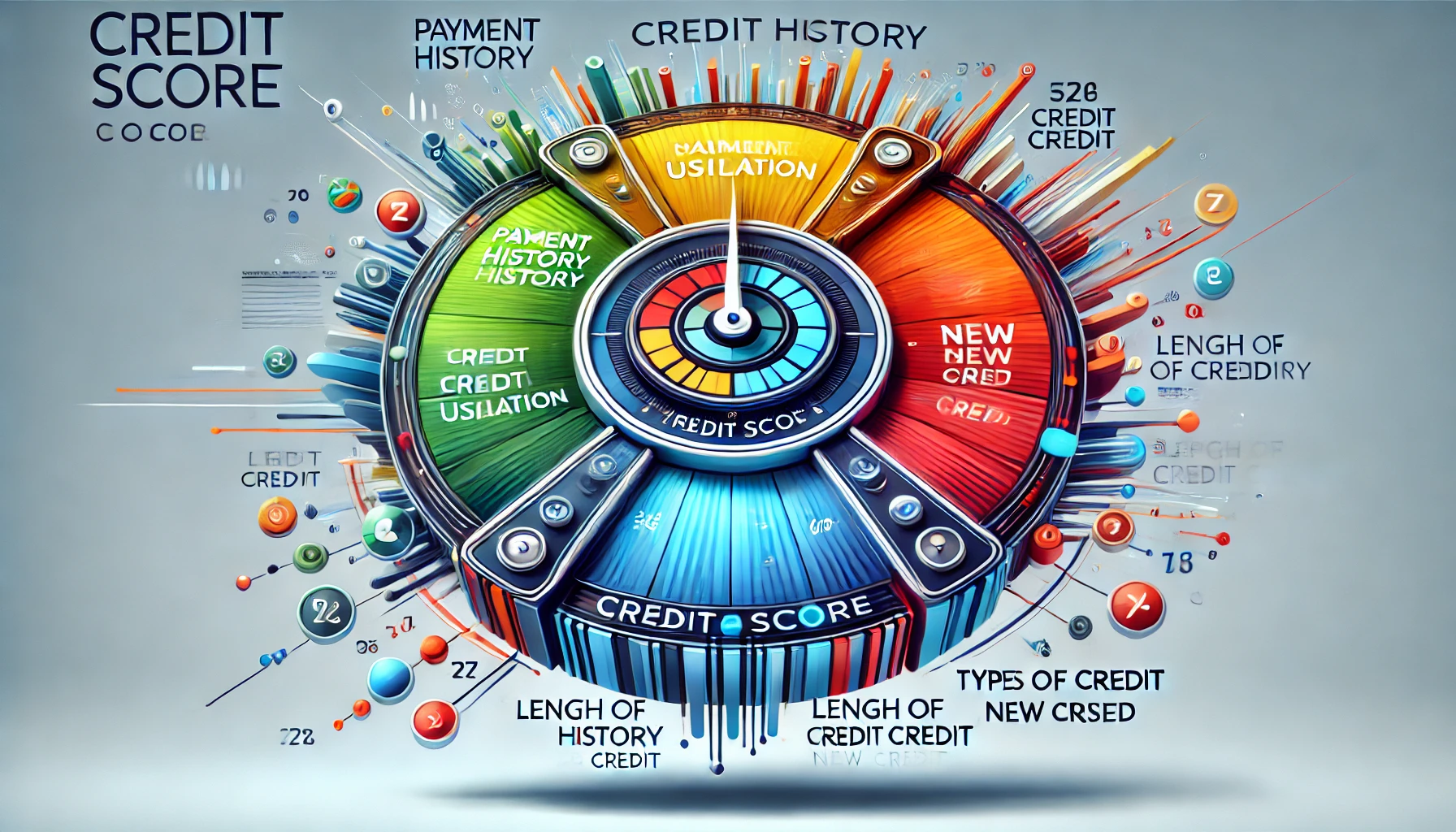Your credit score plays a crucial role in your financial health, affecting your ability to secure loans, credit cards, and even rental agreements. With over 20 years of experience in financial advising, I’ve guided many clients through understanding and improving their credit scores. This blog will provide you with a comprehensive overview of credit scores and actionable steps to enhance yours.

What is a Credit Score?
A credit score is a numerical representation of your creditworthiness, used by lenders to assess the risk of lending you money.
Components of a Credit Score
Credit scores typically range from 300 to 850 and are based on the following factors:
- Payment History (35%): Your track record of paying bills on time.
- Credit Utilization (30%): The ratio of your credit card balances to your credit limits.
- Length of Credit History (15%): The age of your credit accounts.
- Types of Credit Accounts (10%): The variety of credit accounts you have, such as credit cards and loans.
- Recent Credit Inquiries (10%): The number of recent hard inquiries into your credit.
Example: A high payment history score and low credit utilization will positively impact your overall credit score.
How to Check Your Credit Score
Regularly checking your credit score is essential for maintaining and improving your credit health.
Free Credit Reports
You can obtain a free credit report annually from each of the three major credit bureaus—Equifax, Experian, and TransUnion—via AnnualCreditReport.com.
Credit Score Monitoring Services
Consider using credit monitoring services to track your score and receive alerts about changes. Some popular options include Credit Karma and Experian.
Strategies to Improve Your Credit Score
Implement these strategies to boost your credit score over time.
Pay Your Bills on Time
Timely payment of bills, including credit cards, loans, and utilities, is crucial for a positive credit history.
Example: Set up automatic payments or reminders to ensure you never miss a due date.
Reduce Your Credit Utilization
Keep your credit card balances low relative to your credit limits. Aim to use less than 30% of your available credit.
Example: If you have a credit limit of $5,000, try to keep your balance below $1,500.
Avoid Opening New Credit Accounts Too Frequently
Each new credit application can temporarily lower your score due to hard inquiries. Only apply for new credit when necessary.
Example: Avoid applying for multiple credit cards in a short period, as this can negatively impact your credit score.
Review Your Credit Reports for Errors
Regularly review your credit reports for inaccuracies and dispute any errors you find.
Example: Contact the credit bureaus to correct incorrect information, such as mistaken late payments or accounts that don’t belong to you.
Additional Resources for Credit Improvement
Credit Counseling Services
Consider seeking help from credit counseling agencies if you need assistance managing debt and improving your credit score. Visit the National Foundation for Credit Counseling (NFCC) for more information.
Financial Education Websites
Explore educational resources on credit and finance at websites like MyFICO and Consumer Financial Protection Bureau (CFPB).
Conclusion
Understanding and improving your credit score is vital for achieving financial stability and accessing favorable credit terms. By regularly checking your credit reports, paying bills on time, reducing credit utilization, and correcting errors, you can enhance your credit score and strengthen your financial future. Implement these strategies to see tangible improvements in your credit health.
Resources for Further Information
Trusted Websites for Credit Score Information
- Annual Credit Report: Obtain free credit reports from the AnnualCreditReport.com.
- Credit Score Monitoring: Use Credit Karma or Experian for credit score monitoring services.
Credit Improvement Tools